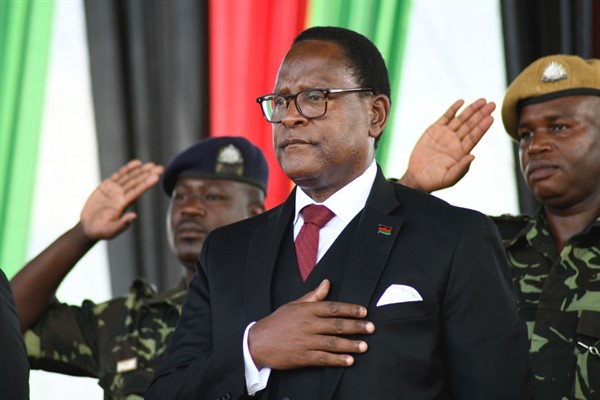Malawian President Lazarus Chakwera’s decision to reshuffle his Cabinet last week after graft allegations surfaced against several of his ministers highlights intensifying public disillusionment with the country’s direction since he took office in June 2020. Chakwera had also been facing increasing pressure from within his ruling Tonse Alliance coalition, with many of its smaller members accusing the dominant Malawi Congress Party, or MCP—the country’s oldest political party, which Chakwera heads—of corruption and nepotism.
In recent weeks, street protests have sprung back up across the country, in response to a call from Bon Kalindo, a former parliamentarian and political activist, to resume them after a brief pause over the Christmas holidays. Kalindo organized nationwide anti-government protests last year, including one in December in which more than 10,000 Malawians descended on the streets of Lilongwe, the country’s capital, to protest the dire state of affairs in the country. In particular, Chakwera’s pledge to create 1 million jobs came under intense scrutiny, with demonstrators lamenting the bleak employment conditions, particularly for young people.
Civil society organizations have been equally unsparing in their assessment of the incumbent administration. Late last year, the Human Rights Defenders Coalition criticized Chakwera’s government for having failed to live up to its promises. And two weeks ago, the Public Affairs Committee, a coalition of the country’s civil society organizations, offered blunt criticism of Chakwera’s administration during a meeting with him, with the group’s spokesperson condemning Chakwera’s “contradictions” and “selective justice.” Even Malawi’s Catholic and Episcopal leadership have been outspoken in their criticism of the government’s floundering anti-corruption efforts.

